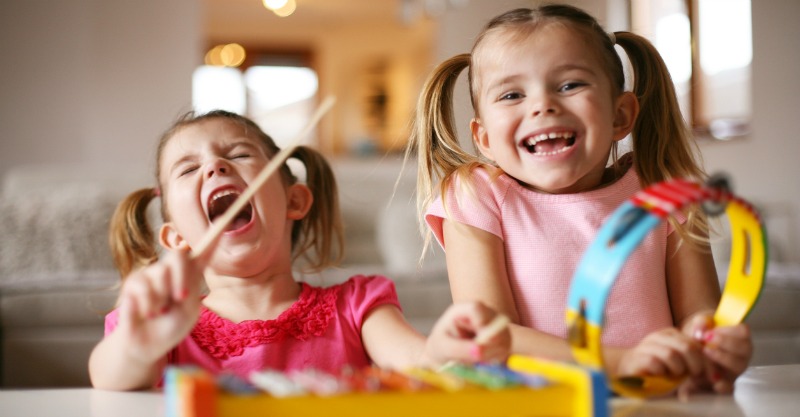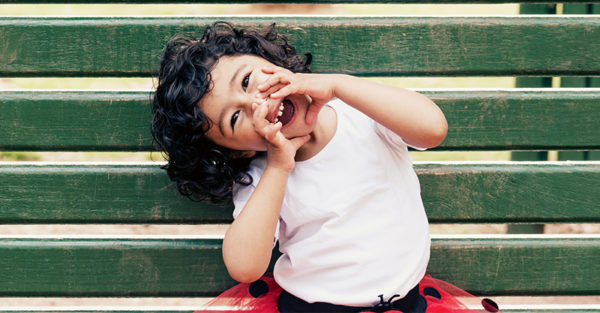10 ways to raise happy kids

We all want the best for our children, with ‘happiness’ more often than not being at the top of the list. While it sounds easy enough, how exactly to do you raise your kids to be happy?
It turns out, that to raise kids who are happy and well-adjusted, it takes more than just wishful thinking. According to science, there are several things we parents can be doing to encourage happiness in our children, and the good news is, a few small, but very significant actions can go a long way.
Here are ten things that can help you raise happy kids, according to science:
1. Eat together
The humble family dinner has amazing positive effects on the wellbeing of the whole family. Research indicates that children who eat with their families on a regular basis are more emotionally stable and less likely to turn to drugs and alcohol as a teenager! But that’s not all, family dinners become like traditions, increasing the security of children and creating happy memories.
Read more about family time here:
- Gold Coast nightclub turns into family rave venue – and the kids are loving it!
- Family dinners are more important than you think, here’s why
- (Sibling) love is dead: Why big family living is nothing like ‘The Brady Bunch’
2. Praise effort – not results
The emphasis here is on praising kids for the effort or work they put into the job, rather than the overall result. So, ‘Wow, you’ve worked so hard on that drawing!’ is better than ‘That drawing is amazing!’ for creating long-lasting happiness.
3. Let them play
Kids need their space to play and create, which can often be cramped by busy schedules and homework, as well as too much screen time. Research indicates that unstructured playtime helps children be present in the moment (aka mindfulness), and encourages them to self-regulate as well as learn from their relationships with other kids.
4. Teach children about emotions
Being happy means understanding how your emotions work. For kids to do this, we need to coach them through the process. By teaching children that all emotions are important and okay (even feelings like anger and sadness), we give them the validation they need to express themselves and feel safe in doing so.
5. Role model optimism
Practising optimism, especially when there’s so much negativity in the world can be a hard thing to do, but it’s up to us to teach kids how to stay positive and develop a resilient attitude, giving them that ‘don’t give up’ ethos.

6. Help your child understand gratitude
Gratitude teaches kids to be thankful for what they have, but it also wires their brain for thinking more happily overall. Research has found that children tend to feel more satisfied with their lives if they think ‘gratefully’, compared to children who focus on things in life that annoy them. This way of thinking encourages kids to focus on what they have rather than on what they haven’t got.
7. Avoid talking about heavy topics
Research indicates that some healthy conflict isn’t so bad for kids to see. But try to avoid having any big arguments or heavy conversations in front of the kids. Raised voices can make kids feel unsure and scared, while discussing things like war or grandma’s poor health can be issues that are too big for kids to handle.
8. Encourage self-discipline
According to science, kids who can practice self-discipline are more likely to cope better with frustration and stress. An example of this is explaining she can leave the table once everyone’s finished eating dinner or can have a treat later, not right away.

9. Turn off the screens
The TV can be comforting background noise and an excellent babysitter for the kids while you get things done. However, research shows there’s a strong link between happiness and NOT watching TV. Apparently, happier people tend to watch a lot less TV. And when you think about it, there’s a lot of fun to be had that doesn’t involve having your face glued to a screen.
10. Let children fail (i.e. learn from mistakes)
Even though it’s tempting to wrap our kids up in cotton wool and never let them be disappointed, in the long run, this isn’t doing them any favours, and won’t help them in the happiness stakes down the track. But if you let children experience what it feels like to make mistakes they will become more resilient, which counts for so much more than winning every time.









